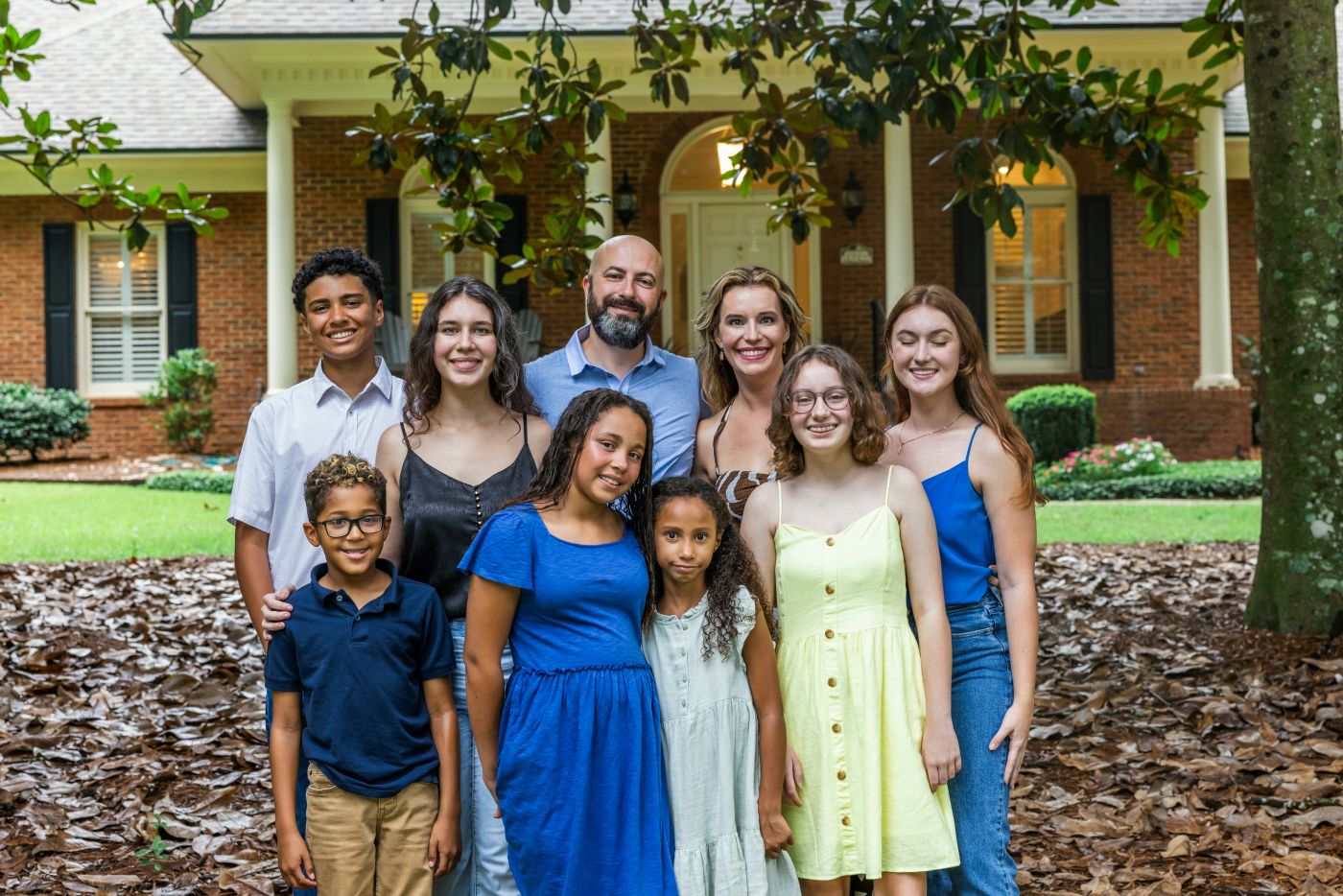
Blended families bring unique joys and unique challenges. When two households merge, there’s often a wide range of relationships, responsibilities, and financial considerations to balance. Parents may have children from prior marriages, and they may also share children together. With this mix of loved ones, planning for the future takes careful thought.
That’s where estate planning becomes so important. Without thoughtful preparation, blended families may face disagreements or even legal disputes after a loved one passes away. These conflicts can strain relationships and lead to outcomes that don’t reflect the wishes of the person who worked hard to provide for their family.
At Checkett, Pauly, Bay & Morgan, LLC, serving Carthage and Nevada, Missouri, as well as the greater Southwest Missouri area, we know how important it is for blended families to address these issues before they become problems. Contact us today to create a clear roadmap that protects loved ones and minimizes the chance of future disputes.
Why Blended Families Face Unique Estate Planning Challenges
Traditional families often focus on dividing property between a spouse and shared children. For blended families, the situation is often more layered. A parent may want to support a current spouse but also leave something for children from a prior relationship. In some cases, stepchildren may be part of the picture, which can create even more questions.
These situations can quickly become complicated if someone doesn’t have a clear estate plan in place. For example, if a parent passes away without a will, state law may divide assets in ways that don’t reflect the person’s actual wishes. By using estate planning to clarify intentions, blended families can avoid leaving loved ones in such difficult positions.
Setting Clear Goals for Your Estate Plan
Every estate plan starts with identifying goals. For blended families, those goals often include balancing support for a spouse with providing for children from a prior marriage. It’s also common to want to:
Protect a surviving spouse: Many people want to make sure their current partner is financially secure.
Provide for children from previous marriages: Parents often want to leave specific assets or property to children from earlier relationships.
Consider stepchildren: Some families choose to include stepchildren in inheritance planning, while others don’t.
Minimize conflicts: A well-drafted estate plan reduces the risk of disputes after death.
By setting clear goals, we create a foundation that guides every decision about wills, trusts, and other estate planning tools. Taking time to define priorities at the beginning often makes the process more focused and effective. These conversations also help uncover issues that might otherwise have been overlooked.
Trusts as a Tool for Blended Families
Trusts can provide more control and flexibility than wills. They allow us to distribute assets in accordance with specific terms and timelines. For blended families, trusts can solve problems that wills alone can’t.
Some common approaches include:
Marital trusts: These trusts provide income or access to funds for a surviving spouse during their lifetime, with the remaining assets going to children after the spouse passes away.
Bypass trusts: Also called credit shelter trusts, these can allow assets to pass to children while also providing for a surviving spouse.
Discretionary trusts: These allow a trustee to distribute assets based on circumstances, which can help balance the needs of multiple households.
By using trusts, we can make sure that a spouse is cared for while also protecting inheritances for children. This helps reduce resentment and confusion after someone passes away. Trusts also provide flexibility that allows families to adjust for future needs or unexpected situations.
Using Beneficiary Designations Wisely
Some assets don’t pass through a will or trust at all. Life insurance policies, retirement accounts, and payable-on-death bank accounts all transfer directly to the named beneficiary. For blended families, reviewing these designations is essential.
If someone forgets to update a beneficiary after remarriage, an ex-spouse could end up receiving funds instead of current family members. To avoid these mistakes, we make sure that beneficiary designations align with the overall estate plan.
This step might seem small, but it can have a huge impact. For example, life insurance is often meant to provide for a surviving spouse or children. Making sure the correct person is listed helps the money go where it’s needed most. Beneficiary reviews are quick, but they prevent costly mistakes and confusion down the line.
Preventing Family Conflicts Through Clear Communication
Even the most detailed estate plan can cause conflict if family members don’t understand it. That’s why communication plays such an important role.
We often encourage families to have open conversations about estate planning decisions. While these talks can be uncomfortable, they can prevent resentment later. When everyone knows what to expect, there’s less chance of surprises that might trigger disputes.
Some ways to approach these conversations include:
Explaining intentions clearly: Letting family members know why certain decisions were made.
Discussing responsibilities: For example, explaining why one child may be chosen as executor.
Addressing sensitive topics early: Tackling disagreements before they grow into larger issues.
Open dialogue helps protect both relationships and the integrity of the estate plan. It also encourages trust, which is especially important in blended families where different households may already feel divided. Clear communication often makes the legal documents more effective in practice.
A Rundown of Prenuptial and Postnuptial Agreements
While many people think of prenuptial and postnuptial agreements as dealing only with divorce, they can also support estate planning. These agreements clarify what property belongs to each spouse, which can reduce conflict in blended families.
Updating Your Estate Plan Regularly
Life changes often for blended families. Marriages, divorces, births, and deaths all affect estate planning decisions. That’s why it’s important to review and update estate plans regularly.
We recommend reviewing your plan when major life events occur, including:
Marriage or remarriage
Birth or adoption of a child
Divorce
Death of a family member
Significant financial changes
Regular updates confirm that the plan always reflects current goals and circumstances. Making small adjustments along the way is easier than waiting until major problems appear. Consistent reviews help preserve both family harmony and financial security.
How Estate Planning Reduces Stress for Blended Families
The true value of estate planning is in the peace it provides. Knowing that a spouse, children, and even stepchildren are protected gives families confidence about the future. Instead of leaving loved ones with unanswered questions or disputes, a thorough estate plan provides clarity.
Estate planning is more than just dividing property. It’s about protecting relationships, reducing conflict, and making sure the family’s story continues with stability and security.
Build Your Plan With an Experienced Estate Planning Attorney Today
At Checkett, Pauly, Bay & Morgan, LLC, we’ve worked with many blended families to create thoughtful estate planning solutions that prevent conflict and protect loved ones. We know how important it is to clarify your wishes while making sure everyone you care about is supported.
If you’d like to create or update an estate plan, we encourage you to reach out today. Our firm serves families in Carthage and Nevada, Missouri, and the greater Southwest Missouri area.



